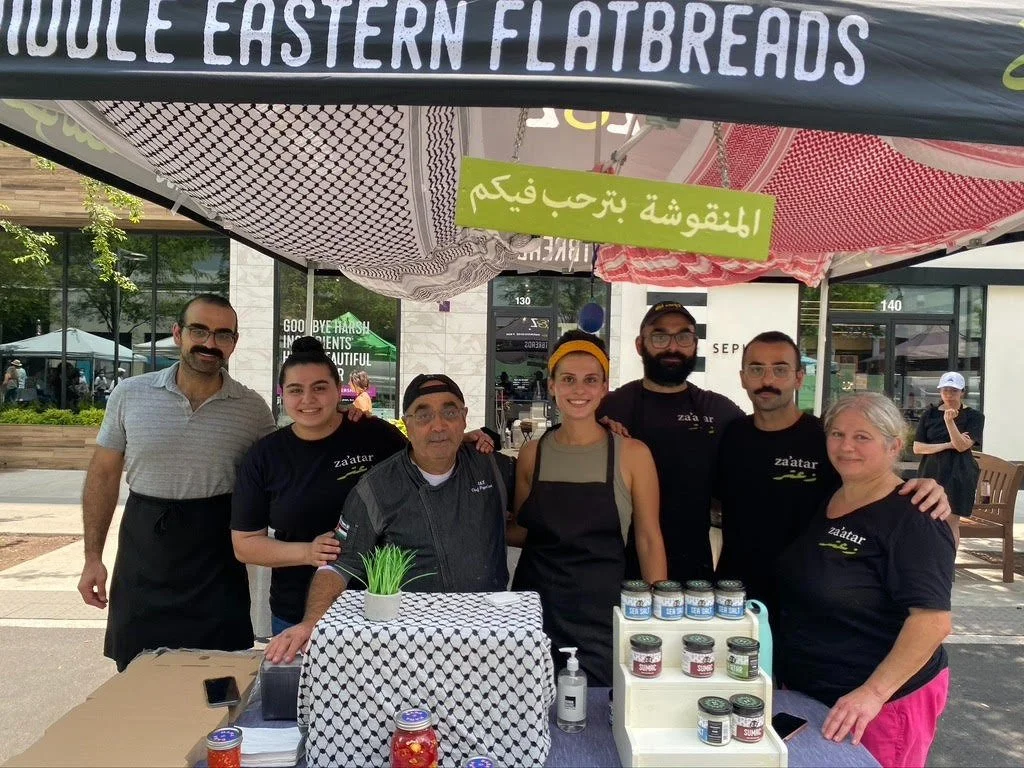Palestinian you should know: Anan Zahr
The following was originally published in Palestine in America’s print Food Edition. Please consider subscribing or purchasing individual individual print and or digital copies.
Anan Zahr has owned and operated Olive Tree Mediterranean Gourmet in Wilmington, Delaware for nearly a decade. She is an active community member in the Philadelphia area and has dedicated a large part of her time to being an activist and working with local and national organizations.
Zahr gave Palestine in America insight into being a Palestinian chef in the U.S., why preserving Palestinian food is important to her and her advice for Palestinians wanting to follow her path.
Where in Palestine are you from?
Akka.
Explain your family's history/ Were they exiled? Where did your parents/grandparents grow up?
My father grew up in Akka, and my mother grew up in Jaffa and Nazareth.
When were you acutely aware of your Palestinian identity?
I was always aware of my Palestinian identity, since the first eleven years of my life I lived in Akka.
Did you ever feel you had to hide your identity? Why or why not?
No, I never felt that I had to hide my identity, since it was always very clear of who I was.
Why do you think food is so important for our cultural preservation?
Food in every culture most variably identifies who you are.
When did you begin to cook, and why did you decide to focus on Palestinian food vs. just Middle Eastern or Arab?
Since I had four children, I began cooking very early in life. In my professional life, it was very crucial that I focus on Palestinian food, since I felt that it was being hijacked as Israeli food in many instances.
What challenges have you faced in your career as a Palestinian chef?
I had to constantly prove or explain that the food I was preparing was indeed Palestinian; a classic example is hummus.
What is your favorite Palestinian dish, and why?
Maqluba is definitely my favorite dish since my mother prepared it on a weekly basis.
What is your favorite dish from your restaurant, and why?
Falafel because I think it is a challenge to prepare; you must have the right spices.
What has been the best reaction from customers to your food?
My customers always loved and appreciated the way I prepared my food and felt it was an authentic preparation of Palestinian food.
Food as a form of resistance — explain your thoughts on this concept.
As a Palestinian that is constantly being told that you did not exist or have no distinct culture, food becomes the most obvious vehicle to hold on to one's identity.
What advice do you have for someone looking to launch a Palestinian food business?
A food business is very challenging and requires long hours. To be passionate is not enough; one must also have previous experience in running a business.
What's your most controversial food take?
I really like food fusion — being able to replace some ingredients in a dish, not necessarily to enhance the taste, but to diversify its reach to other cultures.




